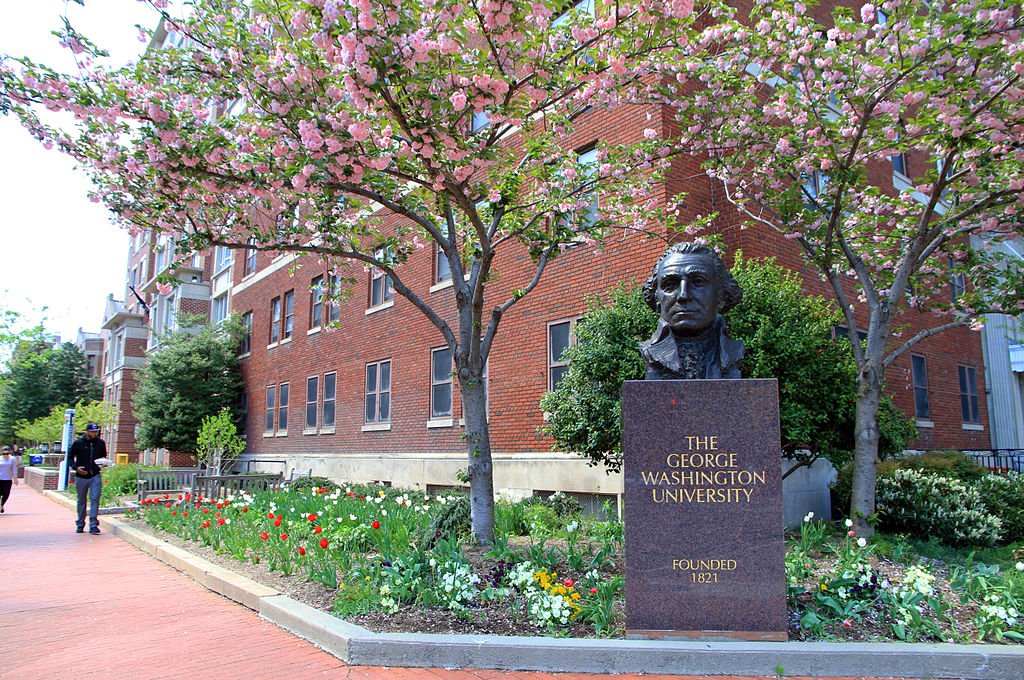No Condemnation or Investigation Of Clear Threat Over Popular Speaker
WASHINGTON, D.C. (January 21, 2019) – When students distributed flyers all over campus clearly threatening unlawful physical violence to a popular invited speaker and to the host student group, in an attempt to have his scheduled speech cancelled, the George Washington University [GWU] reportedly refused to even investigate, much less to condemn such clear threats to academic freedom. Indeed, according to the sponsoring student organization, GWU completely “dismissed the threat and refused to investigate.”
Q3 hedge fund letters, conference, scoops etc
Yet, in sharp contrast, when several sorority sisters posted a single picture, off campus on the Internet site Snapchat, apparently designed to insult and disparage - but not to threaten - all African Americans, the response was swift and dramatic, notes public interest law professor John Banzhaf.
Many student groups denounced the picture - showing a white woman holding a banana peel and saying "Izzy: I'm 1/16 black" - as racist, and demanded that her entire sorority be kicked off campus.
The University issued a statement condemning the single image as "entirely unacceptable," a formal university investigation was launched, the students involved were expelled from their sorority, and GWU's student codes regarding discrimination and inclusion were rewritten.
Perhaps most importantly, GWU's President joined in denouncing the picture as "offensive and racially inflammatory," agreed as a direct result to require - for the first time - mandatory diversity training for all incoming freshmen, said that he would be hosting campus meetings on "race relations," and established a system where students could complain anonymously about things they regarded as verbal harassment and forms of "unwelcome conduct," presumably including so-called microaggressions.
The latter system has already proven to be problematic. For example, it was used to file a complaint with the "university bias reporting process" when a student, in a strictly private conversation, reportedly uttered the single word "Jew" in referring to a GWU Jewish fraternity as someone's "Jew friends."
"It is shocking, but unfortunately not at all surprising, that a clear threat to cause physical harm to a speaker, and to those who invited him to our campus, and which was distributed all over our campus, has elicited not even a brief statement - much less a strong condemnation and a promise of an investigation followed by appropriate discipline - when GWU's response to other events which were insulting at most, and which occurred either off campus or in a private conversation - involved a formal response and strong condemnation," says Banzhaf.
Similarly, a GWU student who displayed an ancient religious symbol, which another student briefly mistook for a Nazi swastika, was strongly denounced and immediately suspended and kicked off campus, and the matter was referred to the Metropolitan Police as a suspected "hate crime."
In contrast, students who just threatened physical violence to prevent other students from hearing a popular speaker - his program sold out in only ten minutes - are not even criticized by GWU, much less is there a suggestion that they might be subject to any investigation or discipline, complains Banzhaf.
Turning a blind eye - and imitating the three monkeys - when it comes to threats of unlawful violence on campus, clearly aimed at stifling free speech, are likely to encourage similar attempts in the future, predicts Banzhaf.
He hopes that, in the future, his university would be at least as concerned about intimidating threats of physical violence as they were about microaggressions, banana peels, ancient religious symbols, and the single utterance of the word "Jew" in a strictly private conversation.
JOHN F. BANZHAF III, B.S.E.E., J.D., Sc.D.
Professor of Public Interest Law
George Washington University Law School,
FAMRI Dr. William Cahan Distinguished Professor,
Fellow, World Technology Network,
Founder, Action on Smoking and Health (ASH),
2000 H Street, NW, Wash, DC 20052, USA
(202) 994-7229 // (703) 527-8418
http://banzhaf.net/ jbanzhaf3ATgmail.com @profbanzhaf





